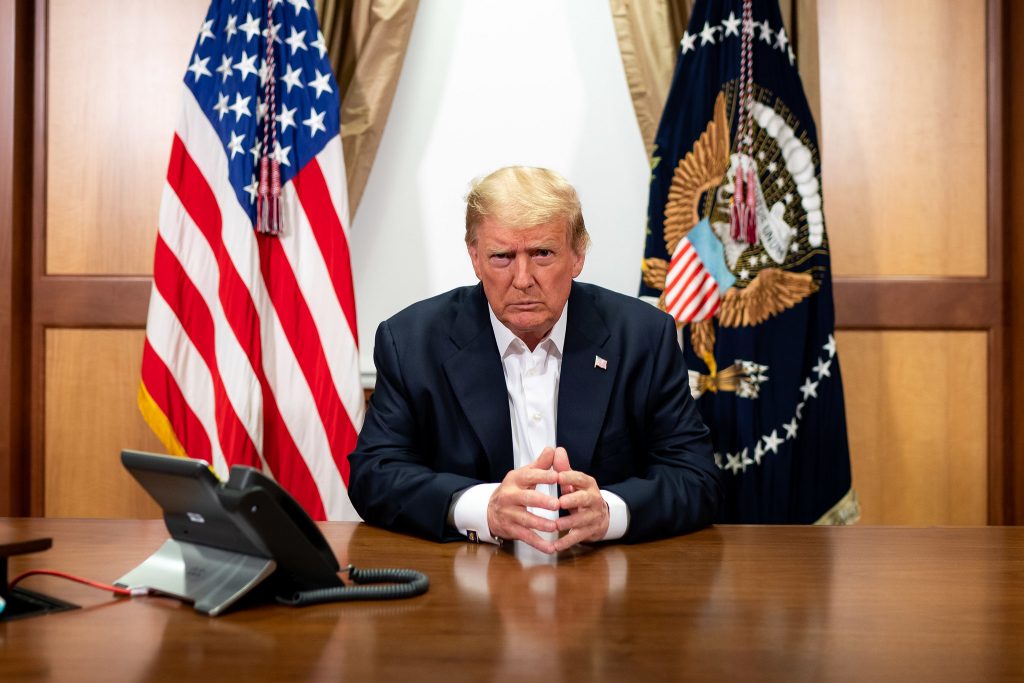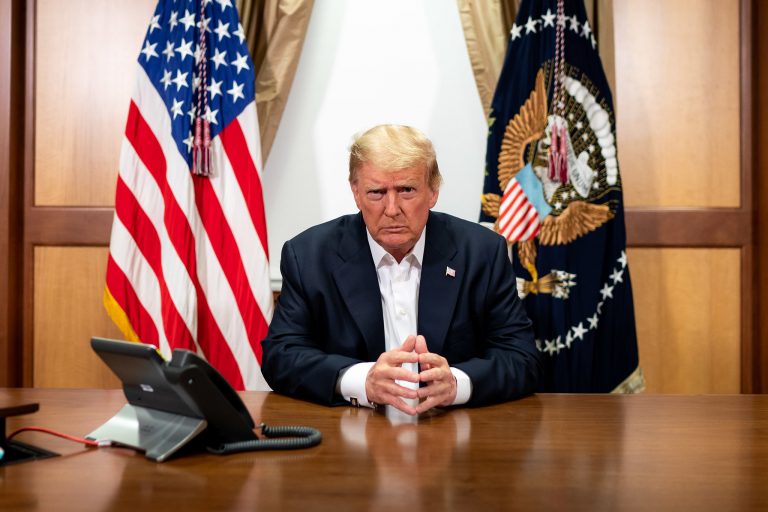
There is only one United States President that has been impeached twice: Donald Trump. He was first impeached on December 10th, 2019 for “Abuse of Power” and “Obstruction of Congress”, and will be impeached for the second time on January 13th, 2021 for “Incitement of Insurrection”.
Trump is 1 of just 3 President’s to ever be impeached: the others are Andrew Johnson in 1868 and Bill Clinton in 1998, both of whom escaped removal from office. Richard Nixon would have been impeached in 1974, but resigned before his impeachment concluded.
Fifteen total US President’s have faced impeachment consideration in some form:
- 45th President – Donald J. Trump (2017 – 2021)
- 44th President – Barack Obama (2009 – 2017)
- 43rd President – George W. Bush (2001 – 2009)
- 42nd President – Bill Clinton (1993 – 2001)
- 41st President – George H.W. Bush (1989 – 1993)
- 40th President – Ronald Reagan (1981 – 1989)
- 37th President – Richard Nixon (1969 – 1974)
- 36th President – Lyndon B. Johnson (1963 – 1969)
- 33rd President – Harry S. Truman (1945 – 1953)
- 31st President – Herbert Hoover (1929 — 1933)
- 24th President – Grover Cleveland (1885 – 1889, 1893-1897)
- 18th President – Ulysses S. Grant (1869 – 1877)
- 17th President – Andrew Johnson (1865 – 1869)
- 15th President – James Buchanan (1857 – 1861)
- 10th President – John Tyler (1841 – 1845)
A brief history of these proceedings can be found at Wikipedia.
The 6 most recent President’s have faced the prospects of impeachment. The last President who wasn’t impeached is Jimmy Carter, the 39th US President, who held office from 1977 to 1981.
At our current rate, every future President of the United States of America will likely face impeachment, but none have jumped so willingly into the belly of the whale as the narcissistic insurrectionist, Donald Trump.
How does impeachment work?
It’s very difficult to remove a sitting President, but the process of impeachment is simple:
- The House of Representatives submit a formal impeachment inquiry
- If the House Judiciary Committee finds it worthy, they compose and submit the Articles of Impeachment.
- The House of Representatives vote on impeachment.
- If more than 50% of House members vote for impeachment, the President has technically been impeached, but not yet removed from office- the process continues to the Senate.
- The Senate conducts an impeachment trial.
- If more than 2/3rd of the Senate votes to find the President guilty, the impeachment is successful and the President is removed from office.
What do you need to prove?
Unlike a criminal proceeding where you must prove guilt beyond a reasonable doubt, impeachment investigations have no clear burden of proof.
Allegations in civil cases require a “preponderance of the evidence”, federal grand juries require “probably cause”, and elsewhere you need only “clear and convincing evidence”. However, the Constitution sets no such requirement for impeachment proceedings and members of Congress need only be convinced to their own satisfaction.
What happens if you’re impeached?
According to the United States Constitution, the only (potential) additional penalty imposed for being impeached, convicted, and removed from office is a permanent ban from holding federal office in the future.
However, the ban on holding future office is not automatic. If the Senate votes to impeach a President, a separate vote must be conducted to determine if they should be barred from future office, and is decided by a simple majority.
An impeachment trial is not a criminal trial. Its sole purpose is to decide whether or not to remove a sitting President. Any further prosecution must be separate, independent, and follow the proper legal channels.
Reasons for getting impeached
To successfully be impeached, Congress must prove that a sitting US President has committed, “Treason, Bribery, or other high Crimes and Misdemeanors”.
The phrase “other high crimes and misdemeanors” has not been explicitly defined by the Constitution, leaving Congress to make interpretations themselves. This intentionally vague language allows the interpretation to change over time as the world unpredictably evolves.
Three categories generally accepted by Congress as impeachable offenses include:
- Improperly exceeding or abusing the powers of office
- behavior incompatible with the purpose and function of office
- Misusing the office for an improper purpose or personal gain
The President does not need to have committed a criminal act to be impeached; the House must simply decide (by a majority) that impeachment is deserved and if 2/3rds of the Senate concurs, the President is removed.
Can you be impeached after leaving office?
Although a President’s resignation is likely to end impeachment proceedings, a President can still be impeached once they’ve left office.
Such was the case for Secretary of War William W. Belknap, who in 1876 resigned just minutes before his impeachment proceedings were set to begin. They proceeded anyway (although Belknap was acquitted).
Additional Notes:
- The Chief Justice of the US presides at the Senate Impeachment Trial
- The President cannot use their pardon power to protect individuals from impeachment or removal from office
- Although President Donald Trump has not yet technically been impeached for the 2nd time as of this writing, we fully expect the House of Representative to conclude with successful articles of impeachment.









